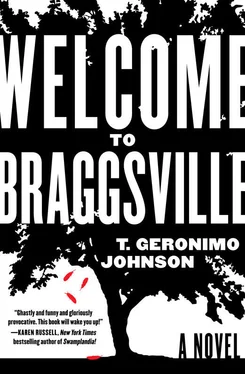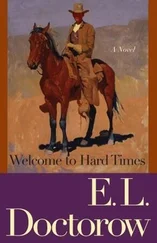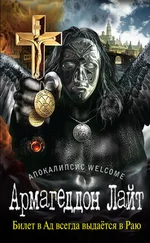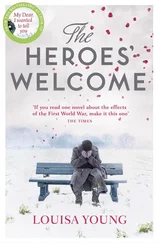[pause]
He wants to tell her… in sooth… yet tells her not… that God did Adam and Eve a favor, as his father had done him. No one could live well knowing that much about someone they loved. So he had to turn them out and be alone. Maybe that, and only that, was tragedy.
Maybe Louis’s cousin was right, Daron thought, maybe we lied to ourselves as the postmaster and my parents lied to me. Or maybe this is what the Greeks meant by tragedy, not that there were two equal claims, but that your heart so wishes them to be twinned that it’s torn asunder by desire deeper than love.
(¿Por qué? Because because because nonetheless understandably.)
He wanted to tell her… in sooth… yet tells her not… cannot… about the collective, née militia, how his father later that night — after John-John, dinner, desert — had cried, because D’aron wasn’t Irish; because D’aron Andrew Jackson from Detroit was his father’s best friend in the Gulf, a real American, African-American at that, saved his father’s life twice, and even stayed with them a spell after he lost his own son in Goddamn Saddam, the Sequel; because his parents could never sell their Braggsville home, nonetheless Daron wanted to — really, truly wanted to — call Agent Denver, even wrote a letter telling him, Drop a net on the whole town, the butcher, the baker, the candlestick maker (and the postmaster), in short, everyone in the Hot Air factory, then tore it up, understandably. How could you blame them for working together, for looking after their own? Besides, as his father said, the collective weren’t really a threat. None was. Black people weren’t no more interested in starting a race war than making mayonnaise. And in regards to population, the Mexicans were just outfucking us; it’s plain and simple ándele, arriba, arriba under the covers. But most importantly, as his father said, You can’t not be white. So there’s no good use chewing yourself rough as a cob about it. He wanted to tell Candice all, but it wouldn’t bring Louis back. [sigh] He swallows this serrated ache — because because because nonetheless understandably — it would only break her heart.
(Besides, wouldn’t he be blaming them for mysteries beyond their comprehension? His certainty that Candice had been raped, his suspicion that Charlie didn’t want to seek vengeance because he was black, his anger when the residents of the Gully [Candice forbade him to use Gulls] apologized for inconveniencing him. Where had that come from? All that smoke in his head, and yet he’d never so much as wanted to light a match at a black person, never hoped any ill on them. The N-word. Nigger. Where had that come from? He’d never said the word aloud, though it had pop-locked into his mind, beatboxing unbidden. Didn’t the N-word mean the same thing? How would it feel if someone pointed to Charlie and yelled, Hey, you N-word! How would it feel? It? How would he feel? He? How would I feel?
How did anyone, anyone, any-damn-one, in this country, for Methuselah’s sake, rise above the mire? Bootstraps? How did anyone live without salt or pepper, speak plain and easy, not want to taste fucking instead of sex or carnal knowledge, ass instead of buttocks or juniors, nigger instead of negro or colored. F-U-C-K-I-N-G-N-I-G-G-E-R-A-S-S-E-S. The cosseted spelling out, and, when not allotted a letter at a time, the highfalutin way they said it all — carnal knowledge, buttocks, negro — said it in that tone which was first cousin to that patronizing timbre used to announce the choo-choo train entering the tunnel when babies were fed. Even then you knew, even the babies knew, that the real good shit was on the table for the adults to nosh.)
He tells her… about the afternoon he scaled the support beams and found himself… found himself… found himself confused… no… confronted… no… found himself staring down the international menagerie in the garage loft: The Charlies, the mammies from New Orleans, Salt and Pepper Climb on Cucumber, as well as the Bibinba, Zwarte Pieten, and Hajji Firuz dolls his cousins picked up while stationed abroad, not to mention the Blackface Soap and Watermelon Whistler tins, and that strange guy wearing only a loincloth, turban, and a skeleton’s grin. Cloistered in the dark, arranged as if guarding the steaming furnace, the fire of accusation in all eyes. When he was young they had both intimidated and empowered him. When he was young, after being threatened, D’aron-aka-Brainiac-aka-Sissy-bka-Faggot shadowboxed with the Moor in the loincloth and, when teased, he, Hippie! kicked The Charlies. One Tom’s scalp was pocked along the left, jagged laps and plastic gashes of exposed skull a visible testimony, a reminder of the day that happy hickory stick licked some pits into its head — after yet another rhubarb with Rheanne. When he was young, they were talismans giving him a measure of control over the world. As an adult, they were curses, provoking him to think that as much as he loved Charlie, it would be easier if there were no black people at all. If only there could only be people. (He’ll feel this sensation again during a study abroad outing to the Vatican museum, when the docent explains that among the garden sculptures crowding one seemingly forgotten small, sideways gallery are pagan idols, that a closer look reveals amid the doe and stag statues of Mithra and Gayomard and other decommissioned gods, and his guilt is replaced by the terror he feels for us all. This he will dare to speak, but that only breaks her heart, too.[ ]
Good morning, sir. I am Candice Marianne Chelsea. I am a junior at Loyola. I am pre-law, with a minor in public health. My date of birth is July third, 1992.
You don’t need to call me sir, Candice.
Yes, sir, Agent Denver.
My name is D’aron Little May Davenport. I was born November thirtieth, 1992, in Braggsville, Georgia. I am a student at Loyola. I’m a general studies major.
I’m Charles Roger Cole… Chicago-Bronzeville… Jan. fifteenth, 1994… Northwestern University… Junior… My major is sociology and my minor is social justice, though I still don’t understand why you need that information. At school I write for The Protest, so know that if we veer dangerously from protocol, the public will be informed… What?… My friends can tell you their own names. They can talk; believe me… Yes. I did use a semicolon in speech… No… right there. That should be a semicolon.
No, sir, not as far as I know. There wasn’t any intention or suspicion there would be any danger. If we thought there was, Louis and I wouldn’t have gone.
Who in Braggsville would have threatened us? Threatened me? The town’s not that kind of place. No, we were never threatened in any way.
Suspicious of what? Tampered with the harness?… That question does not even make sense.
Daron? Secret societies? No, sir! [laughter] No, we never went past the backyard.
I never seen anything back there ’cept that old church.
Daron in a militia?… How long are we going to be here?
We thought it was a good idea at the time, sir. Maybe Charlie and Daron never really liked the plan, but Louis and I always did. States’ rights is not a convincing argument. If we say the Civil War was not about slavery, next we will say that slavery was not about race. Even if we get generous and say it wasn’t about race — at first — what else could it become about? How else could you live with that cruelty? If we deny that, then we’ll say that it was actually a beneficent institution, an early model for the welfare state. The Holocaust goes next, starting with the argument that it was also about handicapped people and the Roma, too. Where does the self-deception end? And who pays for it? We do as much as them! It’s like all those crazy right wingers… Yes. We hoped to get news coverage, but not because of the reasons we did, sir.
Читать дальше
Конец ознакомительного отрывка
Купить книгу












